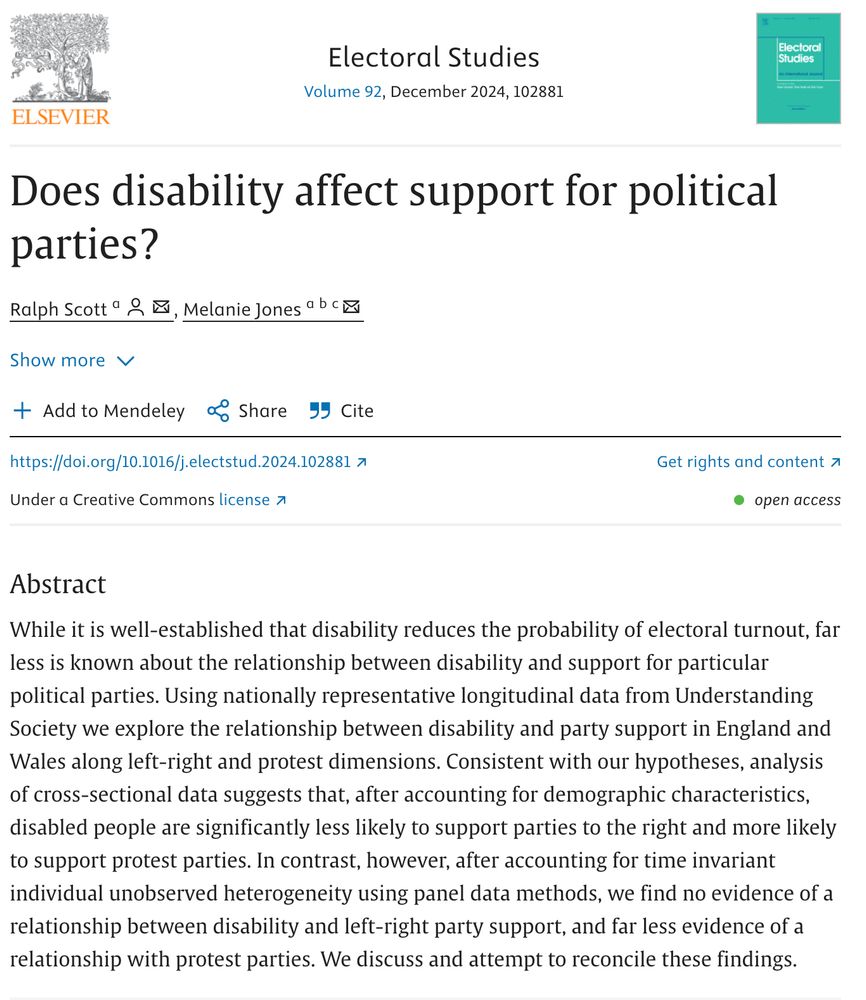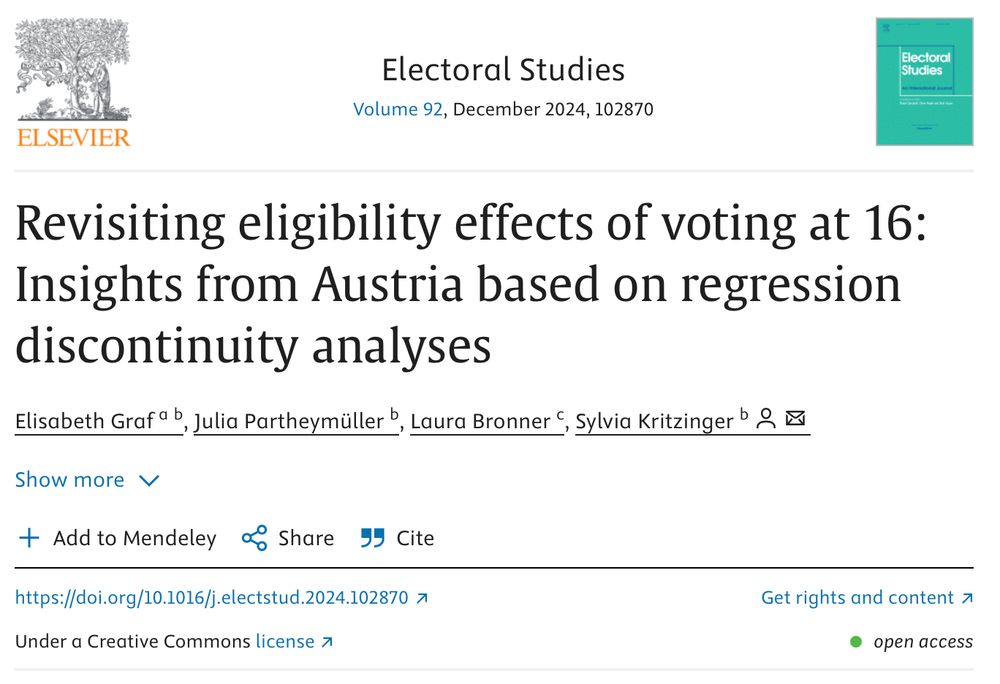www.sciencedirect.com/science/arti...

Reposted by: Oliver Heath

Reposted by: Oliver Heath
@olliheath.bsky.social, Christopher Prosser, Humphrey Southall and Paula Aucott look at the rise of Reform UK
politicalquarterly.org.uk/blog/the-202...

Reposted by: Oliver Heath, Henning Finseraas, Staffan Kumlin
www.journals.uchicago.edu/doi/epdf/10....

🔹 35 years after reunification: The GDR is redrawn on this map.
🔹 The AfD won 45 out of 48 electoral districts in the East.
🔹 In some parts of Saxony, they came close to 50%!
Why is this happening? Here’s my take 👇

Reposted by: Oliver Heath, Thomas Saalfeld
Reposted by: Oliver Heath
Eds @pjsloman.bsky.social @colmpm.bsky.social with @profdaverichards.bsky.social @profrosiecamp.bsky.social @aduggan.bsky.social @kitkowol.bsky.social @mathewlawrence.bsky.social @olliheath.bsky.social
politicalquarterly.org.uk/collections/...

Reposted by: Oliver Heath

Reposted by: Oliver Heath
The 2024 General Election and the Rise of Reform UK
onlinelibrary.wiley.com/doi/10.1111/...

Reposted by: Oliver Heath, Andrew Wyatt

by Peter Allen — Reposted by: Oliver Heath

Reposted by: Oliver Heath, Andrew Russell
"Does disability affect support for political parties?"
Just published in Electoral Studies, co-authored with Melanie Jones.
www.sciencedirect.com/science/arti...
🧵 👇

5 years ago, we wrote a paper about how how newly enfranchised 16-year-olds vote in Austria. But we were wrong.
This year, @elisabethgraf.bsky.social, @schnizzl.bsky.social, Sylvia Kritzinger and I are setting the record straight: authors.elsevier.com/c/1juT5xRaZk...

Reposted by: Oliver Heath, Ben Bradford
doi.org/10.1111/1475...
Reposted by: Oliver Heath

by Philip Cowley — Reposted by: Oliver Heath
by Joost van Spanje — Reposted by: Oliver Heath
The *New Parties Data Set* by Stuart Bramwell and me.
2,434 parties in 22 countries since 1945, their score in 3 elections, and their mode of establishment.
Thanks to our 🇪🇺ERC Consolidator Grant project 🏴🇯🇵🇭🇺🇲🇦🇺🇸🇮🇹🇿🇦🇳🇱team in 🇬🇧London @rhulpirp.bsky.social.
See
dataverse.harvard.edu/dataset.xhtm...
Reposted by: Oliver Heath
We're excited to see your analyses of the new post-2024 GE BES data
For now, @jamesdgriffiths.bsky.social @profjanegreen.bsky.social and Ed Fieldhouse have looked at what we know about Reform
Watch: youtu.be/Z8s9hzTsruc?...
Read: www.britishelectionstudy.com/bes-impact/b...

Reposted by: Oliver Heath
www.psa.ac.uk/psa/news/wid...

